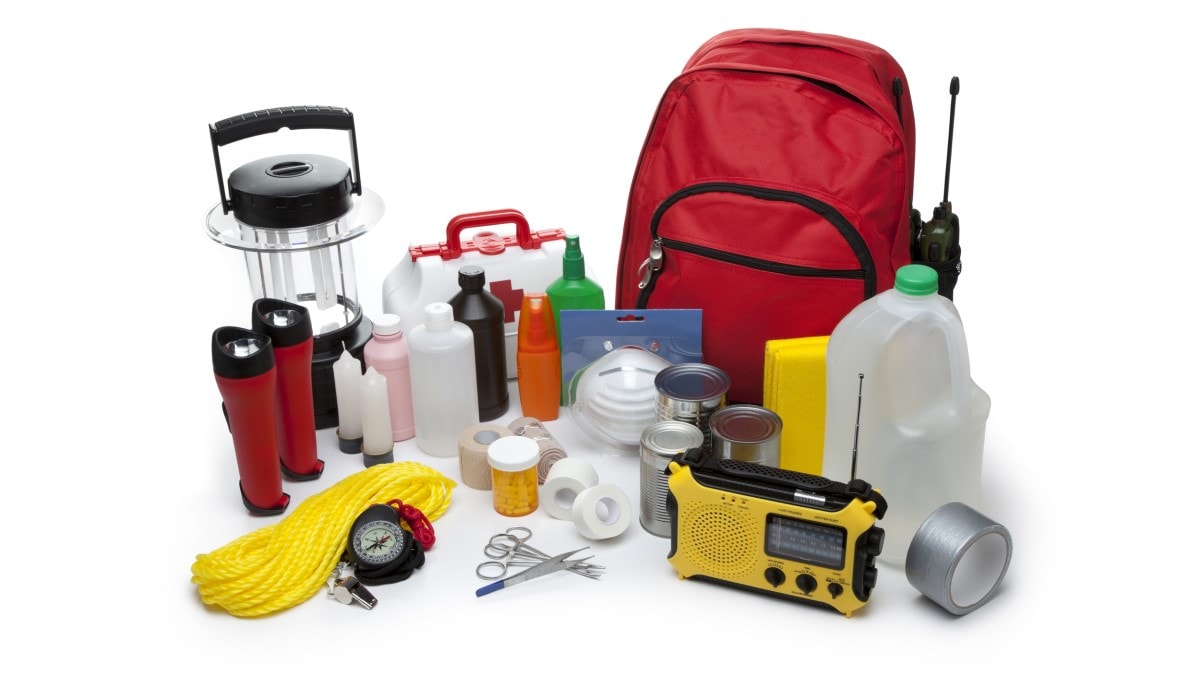What to know
While everyone should be prepared in case of an emergency, cancer survivors have extra considerations. Take steps now to get ready for an emergency.

Overview
What would you do if you had to leave your home in a hurry and you couldn't return for several days, or if you had to stay at home for several days? For example, if you leave to get away from a bad storm, hurricane, or tornado, you may not be able to come back right away because of flooding or a power outage. Or you may need to stay at home because you are sick or hurt.
If you have cancer now or had cancer in the past, you may need medicine or special medical equipment. If you're getting chemotherapy, you may have a high risk of getting an infection. You can take steps now to get ready, so you can take care of yourself and your family if an emergency happens.
Preparing Makes Sense
This video by the Federal Emergency Management Agency (FEMA) explains the key steps to emergency preparedness, including: being informed, making a plan, building a kit, and getting involved.
Get a kit
Pack an emergency supply kit that includes:
- Enough bottled water and food to last at least 3 days.
- Enough medicine and medical supplies to last at least 7 days.
- A copy of your cancer survivorship care plan, if you have one, or your doctor's name and phone number and a list of medicines you take.
- A list of phone numbers and email addresses for people who are important to stay in touch with.
See a detailed list of personal needs to pack in your kit, and more information about packing an emergency supply of medicine.
Make a plan
Think about how you will get in touch with your family if you're not together when a disaster hits.
- Choose two places outside your home where your family will meet in an emergency.
- Ask a friend or family member who lives out of town to be your family's contact person in case of emergency.
Ready.gov has details about how to put together an emergency plan for your family.
Tips for Making an Individual Emergency Plan
This animated video focuses on emergency planning for people with disabilities.
Stay informed
Most mobile devices can get emergency alert messages. They look like text messages, but have a special tone and vibration. Each message shows the type and time of the alert, the government agency that sent it, and what you should do. You'll receive these messages automatically; you don't need to sign up.
If you'd like more information, you can download the FEMA app. It sends you weather alerts for locations you choose, provides safety tips for different kinds of disasters, and helps you find emergency shelters and disaster recovery centers in your area.
The National Weather Service provides detailed information about weather in a mobile-friendly format on mobile.weather.gov.
News media and city, county, and state government agencies provide valuable reports on local conditions, and safety tips and instructions for people in the area during and after a disaster. You can download their apps, bookmark their websites, and follow them on social media to get the latest information quickly.
Avoid getting an infection
People with cancer who are treated with chemotherapy are more likely to get infections because of their weakened immune system. A disaster can cause you to get an infection in many ways. For example:
- If the power is out for a long time, food in the refrigerator won't stay cold. You could get food poisoning if you eat it.
- Tap water may not be safe to drink.
- Broken pieces of glass, wood, or metal could hurt you.
- Flood water can cause dangerous mold to grow. This video explains.
One of the best ways to keep yourself from getting sick is to keep your hands clean. Wash your hands often with soap and water. If you don’t have clean water or soap, use hand sanitizer.
If you notice any signs of an infection, go to a doctor right away. Some common signs of infection include a fever, chills and sweats, a sore throat or other pain, nasal congestion, or vomiting.
Resources
- Prepare Your Health (CDC)
- Emergency Resources for the Cancer Community (National Cancer Institute)
- Ready.gov
- Weather.gov
